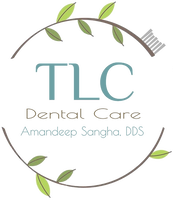
Post Treatment Instructions
Composite Fillings – Post-Treatment Instructions
Composite fillings set up hard right away. There is no waiting time to eat. Children should be observed until the numbness is gone. Due to the strange feeling of the anesthetic, many children will chew the inside of their lips, cheeks, or tongue, which can cause serious damage. Sensitivity to hot and cold is common for a few weeks following dental restoration. Usually, the deeper the cavity, the more sensitive the tooth will be. If you feel the bite is not correctly balanced, please call for an appointment for a simple adjustment. The gum tissue could have been irritated during the procedure and may be sore for a few days along with the anesthetic injection site. The finished restoration may be contoured slightly differently and have a different shape than the original tooth. Your tongue usually magnifies this small difference and will become adjusted to this in a few days.
Preventative Procedures
Brush, floss and rinse with a neutral non-alcoholic mouthwash, (preferably one that contains fluoride, or as directed by your dental professional).
TLC Dental Care uses an assessment by risk management system called CAMBRA, which involves testing to see which risk factors appear, including bacterial levels. We then use a system called CariFree that has buffered products to neutralize the acid that causes cavities and has ingredients to kill bacteria and help prevent cavities.
Restorations
Professional Cleaning & Evaluation: Visit us at regular six-month periods. Often problems that are developing around the restorations can be found at an early stage and corrected easily, while waiting for a longer time may require redoing the entire restoration. We will contact you when it is time for your next appointment.
Problems: If one or more of the following conditions occurs, contact us immediately to prevent further problems: A Feeling of movement or looseness in the restoration, sensitivity to sweet foods, a peculiar taste from the restoration site, or breakage of a piece of material from the restoration. We have done our best to provide you with the finest quality oral restoration available today. However, as with a fine automobile or watch, only our continuing care and concern can assure optimum service longevity.
Sedation Dentistry
- Do not drive for 24 hours after taking sedation medication.
- Do not operate hazardous devices for 24 hours.
- A responsible person should be with the patient until he/she has fully recovered from the effects of sedation.
- The patient should not go up or downstairs unattended. Let the patient stay on the ground floor until recovered.
- Having nutrition after sedation is important. The patient should begin eating appropriate food as soon as possible. Do not delay.
- The patient may seem alert when he/she leaves. However, do not leave the patient alone.
- Always hold the patient’s arm when walking.
- Call us if you have any questions or difficulties. If you feel that your symptoms warrant a physician and you are unable to reach us, please go to the closest emergency room immediately.
- The patient should not carry, sleep next to or be alone with young children for a period of no less than 24 hours after the last dosage of medication.
- Whoever is picking up and driving home the patient should call our office when the patient is home, safe and comfortable.
Periodontal Therapy
Discomfort:
You may experience pain, such as slight throbbing or aching, after your periodontal treatment. This should subside within a few hours.
Sensitivity:
Your teeth may be sensitive to temperature changes and/or sweets. Sensitivity to temperature may be noticeable for the first few days but will diminish over time.
Bleeding:
During your next couple of brushings, you may experience some bleeding. The bleeding should decrease over time.
Appearance:
Your gums may change their shape around the teeth as they heal, which is normal.
Diet and Eating:
Avoid chewing hard foods to avoid injury to the tongue or cheeks.
Implants,
Extractions, and Root Canals
Rinsing:
Do NOT rinse your mouth the day of your surgery. The following day, you will want to gently rinse every 3-4 hours, especially after meals. Do so using ¼ teaspoon salt and a glass of warm water, and continue rinsing for several days.
Exercise:
Do NOT do any heavy lifting or exercise for 3-5 days after your surgery.
Smoking:
Do NOT smoke for 72 hours after your surgery.
Bleeding:
Following extractions, there may be some bleeding. If persistent bleeding occurs, use gauze pads and bite down firmly on for 30 minutes. Repeat as necessary.
Swelling:
Place an ice bag or chopped ice wrapped in a towel to the operated area for 10-minute intervals.
Pain:
Aspirin-type medication is best for mild to average pain. Following your procedure, you may be provided with medication for discomfort. In most cases, a non-narcotic pain regimen will be given of Acetaminophen (Tylenol) and Ibuprofen (Advil), which when taken together are as effective as a narcotic without the side effects. Call our office if you have any questions about your medications.
When to Contact Us
Please see Dr. Sangha if any of these symptoms occur:
- Bleeding continues after 3-4 hours of applied pressure
- You are unable to maintain a nutritious diet after 48 hours
- Pain/swelling increases after the third day
- The oral bandage becomes dislodged prior to the third day
You have an allergic reaction to a medication such as:
- Skin rash
- Hives
- Elevated temperature
- Increased and/or erratic heart rate
- Nausea or vomiting
- Dizziness or fainting
- Blurred vision
If any unusual symptoms occur, call our office.
(209) 334-2821To learn more about post-treatment instructions, contact our office today.
Office Hours
MON8:00 am - 5:00 pm
TUE8:00 am - 3:00 pm
WED8:00 am - 5:00 pm
THU7:30 am - 5:00 pm
FRI8:00 am - 12:00 pm
SAT - SUNClosed
